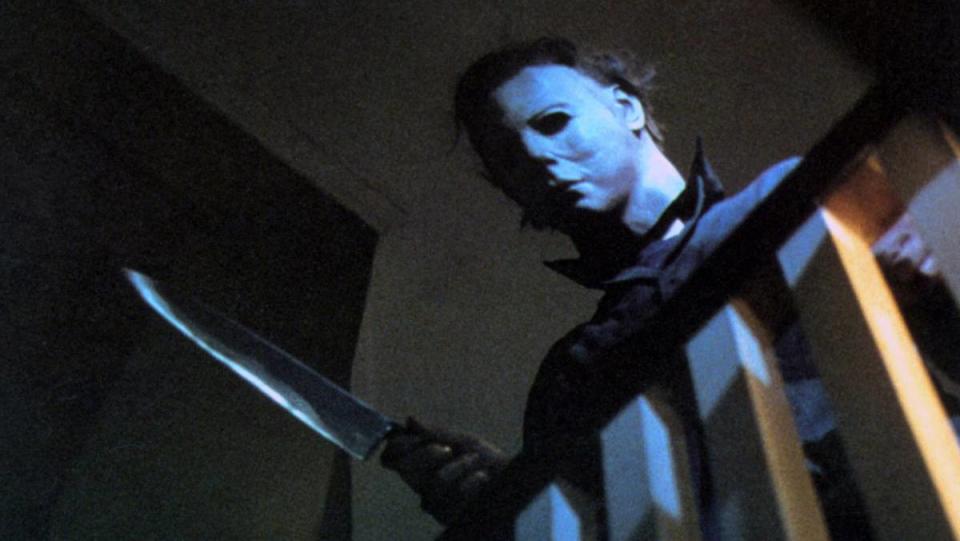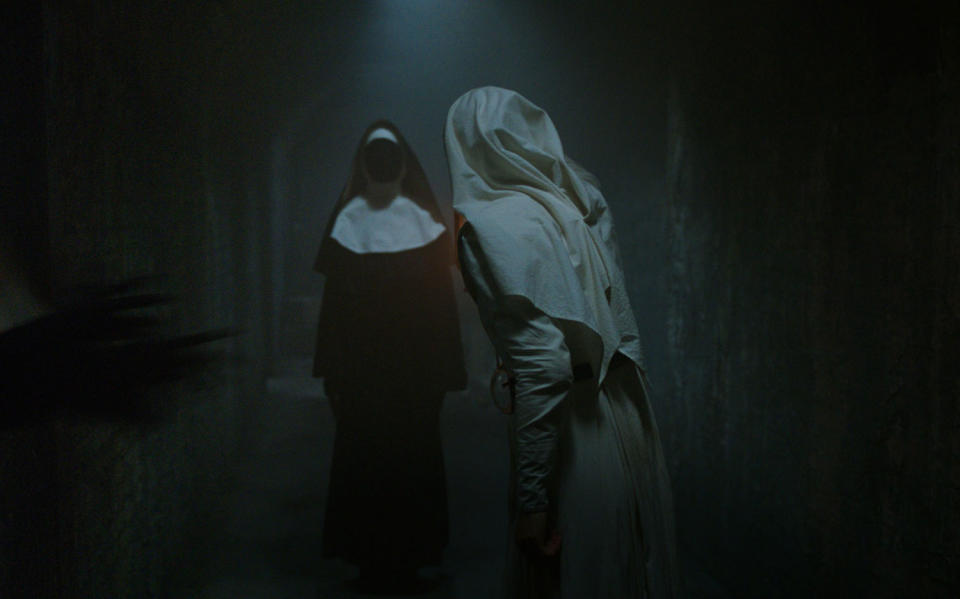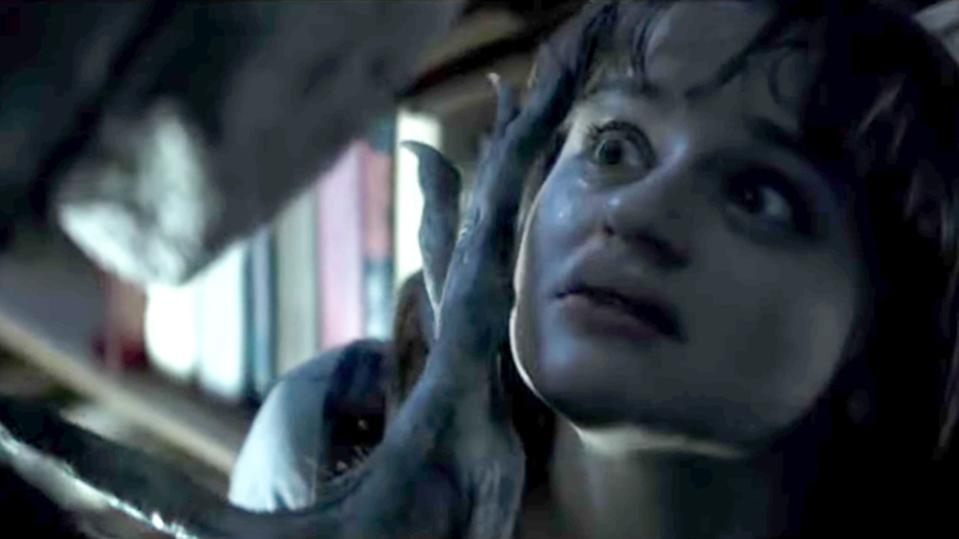What happens to your brain when you watch a horror film
Halloween may have just been a few nights ago, but now that the weekend is here it’s the perfect time to curl up on the sofa with a classic horror or catch the latest scary blockbuster at your local cinema.
But what happens in our brains that makes watching something spooky so exciting? And why do some people enjoy the feeling of being scared more than others?
Dr. Daniel Atkinson, lead clinician at Treated.com, has revealed all about the significant – albeit temporary – effect that watching a scary movie has on our bodies and brains.
He also offers some tips for avoiding a bad night sleep after scaring ourselves silly.
Before the film

“The anticipation of a trip to the cinema to see a horror movie can be quite relaxing and pleasant,” says Dr. Atkinson.
“Your heart rate will be steady and you might feel excited about what lies ahead,” he adds. Choosing a snack and catching up with friends will help settle your nerves for the main event.
The first act: 0-20 minutes
“A horror film that follows a conventional narrative structure will set the audience’s heart racing within the first ten minutes or so,” explains Dr. Atkinson.
Modern horror audiences expect a big scare up front in their films. Recent genre offerings like Halloween and The Nun set their stalls out early, delivering big jumps in their opening sequences.

“A scary scene will cause a sudden spike in fear, and set the tone so that the audience is kept on edge throughout the duration of the film.”
“In response, the body’s sympathetic nervous system will increase the levels of cortisol and adrenaline being pumped around the body. The ‘fight or flight’ hormones prepare the body for extreme circumstances, in case it might have to react in a moment’s notice.
“Pulse and respiration rate will increase to make sure that the body is prepared for action, whether that be running away or staying and fighting. Pupils will dilate to increase sensitivity and broaden vision so that any potential threats can be easily identified.”
The second act: 20-70 mins
After the story is set out in the first act, horror films generally settle down into a rhythm of scares during the middle act. It needs peaks and troughs of tension or audiences become numb to the effect.
“Lots of mini spikes in fear will be activated, as the film uses various techniques, such as false jump scares,” reveals Dr. Atkinson. BBC film critic Mark Kermode describes this as “cattle prod cinema” or the “quiet, quiet, bang” method of filmmaking.

“This storytelling method will lead you to believe you’re about to encounter something truly terrifying and at the last minute it turns out to be something very normal instead but then followed up very quickly by something actually scary.”
It’s at this point you might want to consider holstering your fizzy drink in the arm rest of the cinema seat.
“You may experience palmar hyperhidrosis, more commonly known as sweaty hands, another process triggered by the sympathetic nervous system. The palms of our hands contain lots of eccrine sweat glands which are activated when we get scared.”
The third act: 70-90 minutes
Any horror movie worth its salt will save its most dramatic scares for the final act. Think Danny Torrance being chased into the maze in The Shining, the filmmakers finding the house in The Blair Witch Project, or the climatic home invasion in A Quiet Place.
These moments all put you on the edge of your seat, where you’ll likely stay until the credits roll. And if you’re starting a feel a bit flustered – don’t worry – that’s perfectly normal explains Dr. Atkinson.

“The climax of the movie will likely leave you noticing your heart pumping hard in your chest, you may even feel palpitations,” he says. “During the aforementioned ‘fight or flight’ reaction the blood rushes away from the gut and instead heads towards the essential organs (brain and heart) resulting in the feeling of palpitations.”
“As the scare factor ramps up, you might notice other reactions such as your hair standing on end, also known as goosebumps or piloerection. Thought to be linked to our ancestral animal instincts, our hairs stand on end when we are in a dangerous situation.
“Once the film concludes the audience will feel an immense sense of relief. You may have even held your breath at crucial points and so take a large intake of oxygen.”
After the film
Once the credits begin to roll, you can start to relax, and you should start feeling a lot less anxious.
“It should only take a short while for the body to reacclimatise, as the brain is able to quickly distinguish between what is real and what is not,” says the clinician. “Therefore a normal heart rate should be reestablished fairly quickly.”
The effects of watching a big scary movie may leave you feeling exhausted, particularly if you watch it with a hyped up audience, so Dr. Atkinson advises keeping the fizzy drinks and treats to a minimum
“Traditional cinema snacks tend to be either high in sugar or high in salt. A gripping scary storyline might mean that you are more likely to mindlessly eat a greater amount of your chosen snacks than you usually would. The caffeine and sugar found in some fizzy drinks and snacks could leave you feeling agitated and jumpy. This combination could also contribute to a poor night’s sleep.”

“The terrifying content that fills horror movies may infiltrate our dreams, and occasionally this can keep us from getting a good night’s sleep. Therefore the effects of a horror movie may be more far reaching than initially thought.”
“Keeping an eye on your sugar and snack consumption while enjoying it, as always, is a good idea.”
Why do some people enjoy the feeling of being scared more than others?
Horror films are a bit like Marmite: you either love them or hate them. But why is that?
“The answer to this is not exactly known,” Dr. Atkinson says, “as it potentially lies within the depths of our own personalities. The parts of the brain triggered by fear and pleasure are thought to be closely linked, and this may be why some people enjoy the thrill of feeling scared when watching a film more than others.”
Treated.com is a secure and safe online clinic, offering consultations, prescriptions and medicines all in one place.
Got a story tip? Send it to tips@oath.com
Want more lifestyle and celebrity news? Follow Yahoo Lifestyle on Facebook, Twitter and Instagram.
Or sign up to our daily newsletter here.

 Yahoo Lifestyle
Yahoo Lifestyle 


